Welcome to STRONGWILLED, the multimedia publication aimed at helping survivors of Religious Authoritarian Parenting methods reclaim autonomy and develop solidarity. You can listen to STRONGWILLED wherever you normally listen to podcasts, or you can download and listen here at Substack. If you appreciate our content, consider becoming a paid subscriber and supporting this survivor-led and survivor-centric project.
We wanted to let our readers/listeners know that D.L. is putting on an interactive art show centered on religious authoritarian parenting methods in Gresham, Oregon on April 13th. You can find out more info here.
Estrangement in Nazi Germany: D.L.’s story part 2
Krispin: Hello, dear listeners and welcome to the STRONGWILLED podcast. Before we jump into the episode, I wanted to tell you about DL's art show coming up. I know that not everyone is local to the Portland area, but if you are or you want to make a trek here, for one afternoon DL is going to transform our favorite coffee shop into an experiential religious trauma art installation.
I am so excited. And if you are local or nearby, we would love to see your faces there. That's going to happen on April 13th. You can find a link in the description. And now we're picking up from the last episode. So, DL shared their story, and while we recorded it all in one conversation, I wanted to make sure that we gave space for DL's story for last episode.
And then today we're going to give some space talking about what happened in Germany regarding estrangement after the fall of Hitler, as well as what we think is driving estrangement in the US today. So we'll jump right in with that.
DL: As I was thinking about doing this episode, I was like, one of the things that really broke me out of my bubble of, like I can't think of my parents in a certain way, I'm just not allowed to, was from this book of oral histories of women who lived through the Third Reich in Germany. So this oral historian named Alison Owings wrote this book called Frauen where she talked to women. And this was like in the ‘80s and ‘90s, right? So quite a few decades removed. And maybe she'd even started a little bit earlier, but she'd been doing this project for forever because she's like, nobody talked to the women!
Krispin: Mmm.
DL: And so I want to know what it was like for the quote unquote, average German woman, you know, during the Third Reich.
Krispin: Right.
DL: I read this book of oral histories. Of course, there's women who resisted. There's women who were totally all in on the Nazi regime. So it's interesting just from a wide variety of, of perspectives. But there was one chapter in particular that was like, Oh my God. So I'm going to share really quick about that. Is that okay?
Krispin: Yeah, yeah, that's great.
DL: Okay. So there was this one chapter where she interviews this woman named Frau Ellen Frey. And she just, just reading this. I was like, this is my mom. This is how my mom talks. This is how my mom, kind of talking in circles. Like, “You have to understand, like, we just loved Hitler. He really spoke to the youth. But now, we can't even talk about this to the younger generation. They're so brainwashed, you know, to think everything was so bad.”
One of the things that comes up with the women, and this is horrible, so trigger warning, the Holocaust, denial of reality, all of that. But what a lot of these German women who were somewhat complicit or married to people in the party or members of the Nazi party, what they end up talking about in the decades after is like, “Were there really that many Jewish people that were killed?”
Krispin: Mmm.
DL: “Did you personally know anyone who was killed? Were these numbers inflated to further tarnish the German people?” You know, just shit like that, which we already know will happen once Trump is over and all that. This is all going to happen again here too, right? Like, “Oh, I had no idea so many people were being deported.”
So, all that stuff. But what kept on coming up over and over again is this woman would just demean the young people. She just called it a generational divide, she kept bringing up inn Germany and across the world. The US actually produced a series called the Holocaust where they talked about what happened in the concentration camps and this was shown in so many schools, so many people in Germany and beyond in the eighties.
And it made kids ask their parents, “Hey, you were around during this time period.Did you know? What did you do?” And the parents didn't know what to say. And their kids started turning on them. And their kids married people who, if this, like this woman in particular, when she mentioned, “Oh, this is just manure, like this book you're reading on the Holocaust, it's not real.”
And her son in law flipped out on her. And she was like, “Okay. Well, now I know. We never talk about this again, just because we're so separate.” And she says, “And my daughter, like all women, just believes what her man believes.” You know? And I was like, oh my god, this is like, so my…
Krispin: Right, so textbook.
DL: So textbook!
Krispin: Right.
DL: And this woman, she like dances close to a little bit of accountability, and then just is like, “Oh, but I'm not even allowed to say my real thoughts anymore. You must find people who believe like you and whisper about it in secret because of the young.” And she talks about like being in Spain. She has a second home in Spain because of course she's rich.
Krispin: Uh huh.
DL: And all these kids there were doing a game with all these expats, and they were trying to guess where they were from, and finally, she's like, “We're all German!” And the kids shrunk back, and were like, “The Holocaust, the Holocaust, the Holocaust!” And she was so offended, even though she says in the beginning that she loves Hitler, and she can't bring herself to not love him. Yet she's so offended that these Spanish kids would dare to bring up the Holocaust, you know what I'm saying?
Krispin: Right. Yeah. Mm hm.
DL: For some reason, this lady and her just talking about like, “I don't understand why my kids, you know, are so into this belief, this tarnishing of the German–they believe the lies of the media.” You know, and I was like, wow! That was me. I read that probably six years ago.
Krispin: Mmm.
DL: And that whole book really radicalized me because white evangelical women remind me a lot of these, you know, these German women who supported the Third Reich.
Now, there's some people in there that are super inspiring, too, for how they resisted. I would really recommend this book. But it really makes me think, there's no oral histories of us!
Krispin: Mm hm.
DL: We're trying to do it at STRONGWILLED, in a way. And that could be something we even go into more. But what was it like to grow up with religious authoritarian parents who support the things that Trump exemplifies?
Including capitalism, right? Including racism, including the patriarchy. What am I missing?
Krispin: Yeah.
DL: I mean homophobia and transphobia, right?
Krispin: Right, right. I was going to say that's part of the patriarchy.
DL: The gender stuff is so related to the patriarchy. And what it's been like to be us, to try to be who we are, and then the divide it creates with our parents. It's so painful. I think what I'll say personally for me in the past few years as my estrangement has accelerated and I think I've shared this before, one of the first things we did in the past few years is I told my parents – you know, we set boundaries up with our kid, but then a personal boundary for me was I told them, I don't want you to talk to me about God anymore.
Krispin: Mm hm.
DL: And this was before I had even really figured out that I wasn't a Christian.
Krispin: Uh huh.
DL: And that boundary alone, I think, has done more than I could have imagined because God and religion is how my parents view themselves as good people. If they can't use that as a cover for their transphobia, their racism, their xenophobia, their, you know, capitalist tendencies, all that stuff.
If they can't use that as a cover, they have no cover. And so I feel like the distance is mutual. You know, they don't want to be around me if they can't use Christianese and talk and all that. So that's like the big boundary I have set.And I only see them a few times a year. It is quite awkward And I don't know how many tears I've cried, because I love them and I miss them and I want an actual connection.
I want them to know who I really am. I want them to love and accept me for who I really am. I desire that so deeply. I'm angry at them. I feel sad for them. I want to protect them. I don't want them to suffer. I also want them to be held accountable. You know, it's like, I have so many feelings towards them, and I've had to feel them.
Krispin: Mm hm.
DL: I have, you know, spent so many decades of my life pushing down these feelings. I've cried more over them in the past few years than I could have even imagined. I know why I was stuffing it down because it's painful.
Krispin: Mm hm.
DL: It’s incredibly painful. But I'm a strong person! I did it. I'm feeling my feelings. I'm not pretending things are okay when they're not. I am done begging for scraps of love from my parents that I only get when I obey them. That's not real love. That's not a real relationship. You know?
Krispin: Yeah, exactly. That's what I was thinking. Is it really? I think that's what's so sad is like, it didn't have to come to this point, but when the terms of the of the relationship are, “I'm the authority, I'm the wisest, you can either agree with me, or – you have to agree with me for us to have a close relationship. And you have to think that I have good views. And you have to think that I'm such a spiritual, good person.”
DL: Oh, especially I mean, both men and women in this context are obsessed with viewing themselves as good.
Krispin: Mm hm.
DL: So that's a pressure a lot of people who grew up like this are going to feel. I also think, if you ask my parents, estrangement is a trend. Estrangement is the liberal media. It's TikTok brainwashing us to be angry and never forgive and never get over what happened to us in childhood, right? That's what they think.
Do you want me to go through my rapid fire list of things that actually lead to estrangement with your children?
Krispin: Uh huh.
DL: Okay, here's one: Homophobia leads to estrangement. If you make homophobia the one of the core components of your religion because–
Krispin: And your identity because your religion is your identity.
DL: Don't be surprised when your kids grow up and are like, oh, it's not a big deal to be gay and maybe they're gay themselves, you know?
Krispin: Mm hmm.
DL: That's gonna cause estrangement. Okay. How about this? Uh, creationism.
Krispin: Uh huh!
DL: Maybe teaching your kids to not trust in literal science can lead to some estrangement when those kids grow up and are like, holy shit, um, the earth is more than 6,000 years old. I was raised that way.
Krispin: Mm hm.
DL: I think it's. It's beyond bizarre that my parents don't think that would create a rift in our relationship, knowing that's – and again, our Bible college just closed down. I'm so happy about it. Some people are mad that I was happy, you know. “Think of the people who worked there.” I'm like, I don't care.
The science class we took was creationism. How could I not have a rift? With this bullshit place that took all my money and only taught me creationism in the science classes. Anyways, misogyny and upholding the patriarchy creates estrangement. Particularly if you have people who are not going to benefit from patriarchy and misogyny.
My dad had three daughters, right? And never once seemed to reflect on how his patriarchy and misogyny would impact us. And anytime I brought it up, it's like, “No, no, no, no, no. You can be a missionary. I'm not a misogynist.” This goes into that one. What leads to estrangement is a steady stream of propaganda, right?
I was homeschooled. Again, people don't really want to face this. The Christian homeschooling textbooks, they will go down in history as propaganda of the highest degree. Okay. I have access to other information now, so of course that has created a rift between me and my parents. Them constantly telling me that was brainwashed leads to a rift.
Krispin: Mm hm.
DL: And I think this goes into a larger category of devaluing the young and what they have to say leads to estrangement. If you've been told your whole life that you're a naive liberal snowflake, that your empathy is stupid, I'm sorry, I'm not going to want to be around you.
Krispin: Yeah. Right. Uh huh. And I think part of what you're hitting on here is like things that – I think about that pro-LGBTQA bumper sticker that says, “Be careful who you hate, it might be someone you love.” Sort of cheesy. But I think that this hits on it, which is people feel like they can make these statements.
DL: Yeah.
Krispin: About queer people, about women, about race, right? Like all this stuff their whole lives. And then when we're like, hey, this upsets us. They're like, OK, well, I just won't talk about it anymore. But I've heard you say this your whole life.
DL: Exactly.
Krispin: And unless you want to say, “Hey, I was wrong. I'm sorry. I recognize the impact, I've re-evaluated these things.” That's great. That's awesome. That's the way to go forward. But if you're just like, “I'm just not going to say it anymore,” that's not going to work, because we know what you still think.
DL: Yeah. Okay. I have a few more rapid fires.
Equating Christianity with capitalism is going to create estrangement and a generational divide as capitalism is truly crumbling. Right.
Krispin: Uh huh.
DL: So there's that. Now my dad's obsessed with Elon Musk and the rich and billionaires are good people. You know, I'm like, whoa, okay.
Krispin: Right.
DL: I think transphobia creates estrangement. Becoming obsessed with rigid gender norms and rigid gender roles definitel creates estrangement. Racism creates estrangement. And I think this falls into the obsession with missions or being perceived as doing good around the world and yet upholding these incredibly racist policies here in the United States.
And then my last one is celebrating America and America's freedom for Christians, for white Christian patriarchalists is going to continue to cause estrangement because it becomes ever more clear it's just freedom for a few. Right?
Krispin: Mm hm. Right.
DL: Going back to my first book. So those are things that actually lead to estrangement in my book.
Krispin: Right. Totally.
DL: And those are all these core beliefs of evangelicalism, which we both grew up in. Now, of course, other people can have those beliefs too, in an intersecting amount.
Krispin: Right. I mean, it just really hits on this idea of what we often hear from society in general and from conservative parents, which is like, “Can't we just hold different views and still have a relationship?” And you all get to make that decision.
But I just want to say it's very valid to be like, no, we can't. This is personal. This is not political. It is political, but it is personal. It is how it impacts me or impacts the people I care about. Or just is part of who I am as a person, I want to see justice and equity in the world.
DL: Yeah, I think It is personal because it's both our past, our present and our future, right? And it's time to fight for the future that is not run by white supremacist patriarchalists. Right?
Krispin: Right. And I think what else is hard about this is, I think some people have an easier time where they're like, yeah, my parents or my grandparents hold these views, but I just don't see them that much.
But if you come from this background, there's much more of a likelihood that you're still expected to come to like Sunday night dinner every week.
DL: Cause you have to–
Krispin: –give that like perception of the close Christian family.
DL: And they’re good people. And they're good.
Krispin: And they’re good people.
DL: So if you grew up like this, your parents most likely will continue to pressure you while they hold these beliefs that are very anti the core of who you are, they are going to pressure you to reflect that they are good, that they are good, that they are good. And I am done with that.
Krispin: And you want to spend time with them.
DL: Yeah.
Krispin: And you want to hear about what their pastor's sermon was on Sunday or what their small group is going through or – you know?
DL: And now that their side won the election, it's going to get even worse. And I don't have the energy to do that anymore. So that's a huge part of my personal estrangement story. I just don't have the energy. Now, some people can't put all the boundaries in place, so what we kind of recommend is just read books like Adult Children of Emotionally Immature Parents, learn about greyrocking, learn about protecting your energy however you can.
Krispin: Talk to a therapist that knows about this stuff.
DL: Oh, you would say that!
Krispin: Hahaha! We've talked in the past about how it is important to find a therapist that really understands about estrangement and low contact.
DL: Which is so hard!
Krispin: It is hard, right? So I want to put that caveat out there.
DL: When you say that, I feel in the pit of my stomach, like a lot of people don't have access to that.
That’s one of the reasons why we're doing this podcast, honestly. So if you can't find that, just know you're not alone. Just know that this is a pattern that is taking place for so many people. There's no right way or wrong way.
Krispin: Right. Yeah.
DL: But I would say continuing to check in with who you are, your core values. It's the most beautiful work you will do and it's also devastating because it will put you at odds with your parents. And we are biologically designed to want to be in relationship with our parents.
Krispin: Right. Yeah. I mean, right. There's so many cultural messages about like, well, why can't you just set aside your disagreements and, you know, make the relationship work.
And the truth is our nervous systems, our attachment systems are really predisposed to do that.
DL: Yes.
Krispin: So if you find yourself at this point where you're like. it feels like I can't ignore this rift anymore, that usually is a signal that this is a really big rift that is really demanding of your attention.
DL: Yeah. And I guess the last thing I want to say, cause so many times stories of estrangement can kind of like turn into that I need to justify why I've set these boundaries with my parents or whatever. And then everybody gets to decide, Oh, was DL right to set those boundaries? Or could they have been a little bit more understanding?
You know, I don't care. Christians love to do stuff like that. People who are invested in upholding abusive systems and institutions love to do that kind of shit. I don't care. What I will say is I'm not a Christian anymore. Still loving that life, by the way. I am getting into some witchy shit.
And this is kind of where I want to end it. One of the things I'm most drawn to with a nature based practice, some pagan stuff, you know, looking at tarot, the archetypes, all that stuff, is this idea of balance, right? Wanting balance in the universe, wanting balance in our society. And we're in such an unbalanced time, right?
With who's in power, what they're doing, and so I'm like, of course I'm drawn to this. I've always been into justice, but now I've been thinking about this word, balance. And for some reason, some Christian language and imagery keeps coming up to me.
Krispin: Okay.
DL: And I keep reflecting on it. And I've had to take a break from Jesus for a long time because it was such a huge part of being under control of my parents and white evangelicalism. But, you know, just this phrase, “You reap what you sow.” This is a recurring theme in the New Testament in particular, right? Jesus used so many agricultural metaphors.
Krispin: Good trees bear good fruit, right? Bad trees bear bad fruit.
DL: Yes. So you can look at a lot of stories in the New Testament and be like, wow, the resulting message is, you reap what you sow. You reap what you sow. You reap what you sow. I don't think there's a place in our society where we see this coming true more than parenting. And I know this is a touchy subject for all of us. None of us are perfect parents. You and I are not perfect parents.
Krispin: Mm-hmm.
DL: We've had to self-reflect, we've had to take accountability. We've had to listen to our kids and deal with our own shit on our own.
Krispin: Mm-hmm.
DL: So we've done all the things I, I wish my parents would do. That doesn't mean we're perfect. We're gonna have to keep doing those things over and over again. But I will say, I don't think there's another area in our life that this comes up so much. You reap what you sow. What you sow as a parent with your kids, it will come back around. And that's the kind of hard thing about people like our parents who read these books by Dobson and all that, you know, they were told:
“This is what you'll sow.” And instead they're getting something very different.
Krispin: Right. I mean we're talking in broad strokes. Everyone's situation is different. There are various reasons for rifts between parents and their children. And I, what I will say is, we can look at this and say, there is a trend of people that raise their kids this way, having poor relationships with their kids. And it's like, yeah, what does that say? Right?
DL: Yeah. And as we've talked about in all of our previous chapters is if you control your children with the intent to break their will, which is the expressed intent of religious authoritarian parenting methods, and to make them obey you and obey godly authority – if that is what you sowed in your children, what you will reap is estrangement, a disconnect, and a divide.
Krispin: Right, because you're setting the relationship based upon obedience and submission, not on connection and relationship.
DL: With a living, breathing, complex human being.
Krispin: Mm hm.
DL: So yeah, you're not going to actually have a real relationship.
Krispin: Right, you’re going to have, generally, a kid that's like, I want to escape from this power over me because I want to be my own person.
DL: Yeah. So I think that's the truth. If you don't actually want to be in relationship with a human being, you're not going to get it.
You know? And that's not what any of these books promised. So, that's my big thing. You're going to reap what you sow. Just like Jesus said. And that is happening. You don't get to escape from it. Now is there a repair and all that? Yes, there absolutely is. That can all happen. Right. You know?
Krispin: Yeah, totally.
DL: So I also want to say that. And we know plenty of people who are doing that, and that's really encouraging.
But by and large, when you make your entire life about this totalitarian belief system, that's not happening. So, that's my estrangement story, at least how I wanted to share it publicly. And it's hard to talk about, but I just know – 2025. I'm not the only person in this spot. I hope if you're listening, you know you're not alone and that there's nothing wrong with wanting to be loved for who you are. My god, we should all get that! That's not what a lot of us right have gotten.
Krispin: Mm hm.
DL: And I hope you have spaces to grieve. I hope you have ways to process. For me, you know this already. I've probably already said this. I listen to a lot of Sufjan Stevens and cry.
Krispin: Yeah. Everyone needs their grieving, their relationship with their parents album.
DL: Cause yours was Taylor Swift.
Krispin: Yes! Mine was Red by Taylor Swift. Yours is Sufjan Stevens. I also appreciate a lot of William Fitzsimmons.
DL: Yeah you do.
Krispin: And the Weepies has a wonderful song called Orbiting that is like–
DL: Should we do a playlist?
Krispin: Maybe? I mean, it's a pretty short playlist, but we could do one for sure.
DL: No, I have a lot of songs actually. Some of them are very angry.
Krispin: Yes. I love it. So, right. Let's do that. Let's do our estrangement and low contact playlist. We'll share it on the Discord.
DL: Uh huh! Speaking of Discord.
Krispin: Mm-hm.
DL: I'm loving it. You can join by joining our Patreon or being a part of our SubStack community. I just, social media has gone through a lot. And this is where we're at now. We want to thank everyone who supports this project financially, but also if you share this with people, if you send this to your therapist, if you listen to this with your partner to explain how you were raised – you're awesome.
Thank you so much. We've had a break, like a month break from writing and we are ready to go again. I was very beaten down. I think the election – you know. I'm not surprised. I've been churning out the content. I'm feeling better. I'm feeling ready to keep processing the pain of our childhoods because I think that is directly related to the kind of future in society I want
Krispin: Mm hm.
DL: For myself and for my kids.
Krispin: 100 percent agree.
DL: So here we are, doing the work. It's not sexy. It involves lots of crying to Sufjan. lots of treats .
Krispin: Uh huh, right, lots of figuring out balance, like how do you process this but then also do some enjoyable things?
DL: Yeah, so should we just end like that by saying what are we doing? What's getting you through right now, Krispin?
Krispin: Well, so, we took a month off just to like get our balance, and during that time I got really excited about my photography.
DL: Yeah you did!
Krispin: And so I actually launched a postcard club cause I was trying to figure out, like, I just don't like having my photography just on Instagram. So yeah, this is a little bit of a pitch, I do have a postcard club where people can get a postcard of one of my photos in the snail mail. And you know, we're moving past the internet.
DL: While the postal service still exists you can get postcards from Krispin with a nice little message on them, right? There’s my spiel.
Krispin: Yes, while it still exists. And so that's been really fun. It's prompted me to go back through all the photos I've taken over the last five years and just notice what I really like and have enjoyed and remembering. They're usually things that I take on family trips. So that's been really life-giving right now, especially in the middle of winter to look at these like pictures of, you know, mostly it's just the Oregon coast. And I really appreciate that.
DL: I love the Oregon coast. For me, I don't know if there's anything new I've been doing. I have been going through a lot of the materials I've accrued, you know, reading all these shit books by Dobson and all that, and I'm starting to let the other side of my brain play and cut things up and glue things and making weird art.
Hopefully I will be doing an art show in a few months. So it's been fun to just let the other part of my brain fly.
Krispin: Yeah, we've both been like, we did so much writing and thinking this last year.
DL: And now we're just processing through cutting up things.
Krispin: Right. Yeah, we're just like, let's just go to the visual arts.
DL: It’s great. I think you gotta have a balance, you know?
Krispin: It's been really, really life-giving.
DL: But it's time to keep going with some of our chapters.
Krispin: Mm hm. We do really appreciate y'all supporting and listening and reading and sharing and all of that. Again, I want to reiterate what DL said that we just really appreciate it.
DL: Thanks for listening and we'll be back soon.
Krispin: Thanks for listening to an episode of the STRONGWILLED podcast. You can find more STRONGWILLED content at strongwilled. substack. com. You can follow us on Instagram at strongwilledpodcast. And finally, you can join our Patreon by following the link in the show notes and hear extra episodes each month and join our Facebook community.
Until next time, thanks for listening.


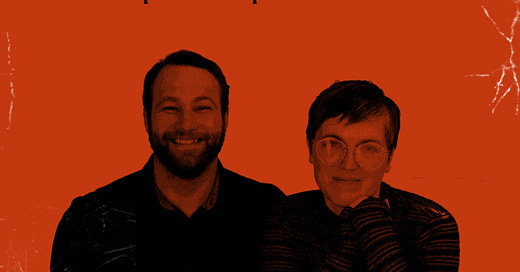









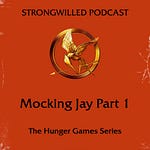
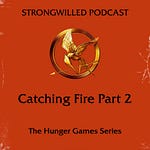
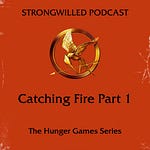


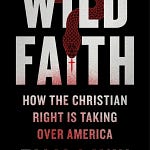
Share this post